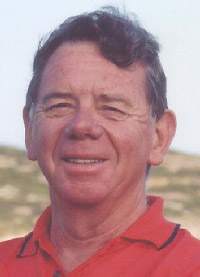John Cawte had an extraordinary passion for the human condition that made him an innovator in the field of transcultural psychiatry. His mentors included anthropologist Margaret Mead and Kamilaroi Elder Bill Reid. His belief that doctors working with Indigenous people had to understand and respect the different cultural and spiritual belief systems of their patients — a given today — was revolutionary for its time.
Born in Adelaide in 1925, John graduated from the University of Adelaide Medical School in 1949.

- Rose Ellis
- Max Kamien
Correspondence:
Online responses are no longer available. Please refer to our instructions for authors page for more information.




